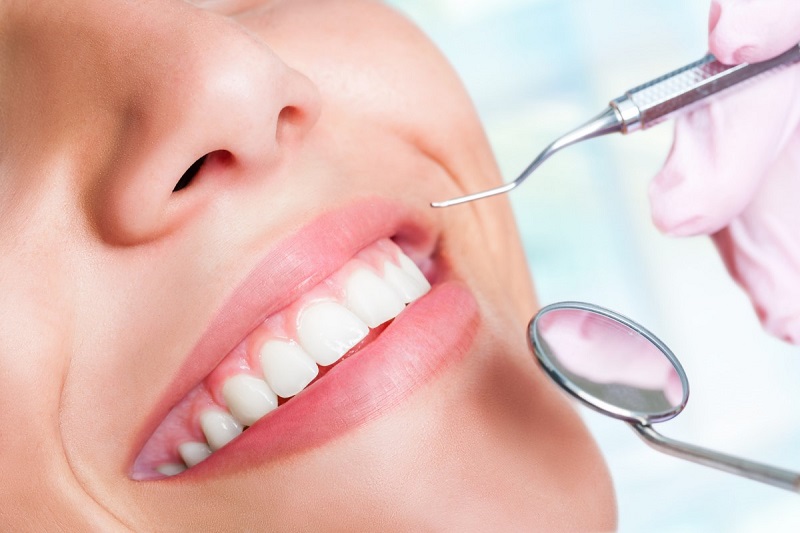Exercising after dental implant procedure can have significant implications for your oral health and the success of the implant. Dental implants are delicate surgical components designed to replace missing teeth, and they require a period of healing and integration with your jawbone to ensure their stability and long-term success.
In this post, we will explore what happens if you exercise too soon after a dental implant and highlight key considerations to safeguard your oral health.
What happens if I exercise too soon?
Exercising too soon after a dental implant procedure can have several adverse effects, including:
- Increased Blood Flow: Vigorous exercise increases blood circulation throughout your body, including the mouth. This can lead to increased bleeding at the implant site, delaying the initial stages of healing and potentially causing complications.
- Swelling and Inflammation: Intense physical activity can exacerbate swelling and inflammation at the surgical site. Swelling can be uncomfortable and slow down the body’s natural healing processes.
- Dislodging Implant: Dental implants need time to integrate and fuse with the surrounding bone. Exercising too soon can create excessive forces and vibrations, increasing the risk of implant dislodgment or failure.
- Infection Risk: When you exercise, you may breathe more heavily through your mouth, potentially introducing bacteria into the surgical area. This increases the risk of infection, which can be detrimental to the implant’s success.
- Pain and Discomfort: Exercising too soon can intensify pain and discomfort, making your recovery more challenging and less pleasant.

How to know when to resume exercise?
Determining when to safely resume exercise after a dental implant procedure can vary from person to person and depends on the specifics of your surgery. It is crucial to follow your dentist’s specific post-operative instructions and recommendations, as they are tailored to your individual case. Here are some general guidelines to consider:
- Consult Your Dentist: Before making any decisions about resuming exercise, consult your dentist or oral surgeon. They will provide you with personalized guidance based on the complexity of your procedure, your overall health, and your progress in the healing process.
- Follow the Healing Timeline: Dental implants typically require a healing period of several days to weeks, during which the implant integrates with your jawbone. Follow the recommended healing timeline provided by your dentist before considering any vigorous physical activity.
- Monitor Swelling and Discomfort: Pay attention to your body’s signals. If you still experience significant swelling, discomfort, or pain around the implant site, it’s not advisable to engage in strenuous exercise. Wait until these symptoms have subsided.
- Avoid High-Impact Activities: High-impact exercises, such as running or heavy weightlifting, can create excessive vibrations and pressure that may compromise the implant’s stability. Start with low-impact activities like walking or gentle stretching before gradually increasing intensity.
- Protect Your Mouth: If you do decide to exercise, protect your mouth during the activity. Wear a mouthguard or follow any additional precautions recommended by your dentist to safeguard the implant.
- Stay Hydrated: Proper hydration is essential during the recovery period. Drinking plenty of water can help reduce the risk of complications and promote overall healing.
- Listen to Your Body: The most important rule is to listen to your body. If you experience pain, discomfort, bleeding, or any unusual sensations during or after exercise, stop immediately and consult your dentist.

What should be noted?
Certainly, here are some additional considerations to keep in mind when deciding when to resume exercise after a dental implant procedure:
- Medications: Take into account any medications prescribed by your dentist or oral surgeon. Some medications can affect your ability to engage in physical activity, so consult with your healthcare provider about their impact on exercise.
- Nutrition: Maintain a balanced diet rich in vitamins and minerals to support the healing process. Proper nutrition can play a significant role in recovery and overall well-being.
- Oral Hygiene: Continue practicing good oral hygiene, but be gentle around the surgical area. Avoid brushing or flossing too vigorously near the implant site to prevent irritation.
- Follow-up Appointments: Attend all follow-up appointments with your dentist as scheduled. They will assess your progress and make recommendations for when it’s safe to resume exercise based on your individual recovery.
- Avoid Smoking: If you smoke, avoid tobacco products during the healing phase, as smoking can impede blood flow and hinder the healing process.
- Communication: Keep open communication with your dental team. If you have questions or concerns about resuming exercise or your recovery, don’t hesitate to reach out for guidance.
- Gradual Return: When you do decide to reintroduce exercise, do so gradually. Start with light activities and gradually increase intensity and duration as your comfort and healing permit.
- Stress Management: Consider stress-reduction techniques such as meditation or yoga, as stress can impact healing. These activities can be gentler alternatives to vigorous exercise during the recovery period.
Remember that the healing process varies from person to person, so it’s essential to be patient and prioritize your oral health. Your dental professional’s guidance is crucial in making an informed decision about when to safely resume exercise while minimizing the risk of complications to your dental implant.

In summary, exercising too soon after a dental implant procedure can lead to complications such as increased bleeding, swelling, potential implant dislodgement, and a higher risk of infection. To determine the right time to resume exercise, consult your dentist for personalized guidance, follow the recommended healing timeline, and closely monitor any discomfort.
Prioritize low-impact exercises, protect your mouth if you choose to work out, and maintain proper nutrition and hydration.
If you need any help, please call our helpline at 028 3920 9969 or 096 779 7799. In case you reside in Vietnam, Platinum Dental will be helpful to assist you in selecting the best smile therapy. Can’t wait to work with you!
- Location: 127 Nguyen Cu Trinh Street, District 1, Ho Chi Minh City
- Time: 8:00 – 20:00 (Monday – Saturday)
- Number: 028 3920 9969 – 096 779 7799


